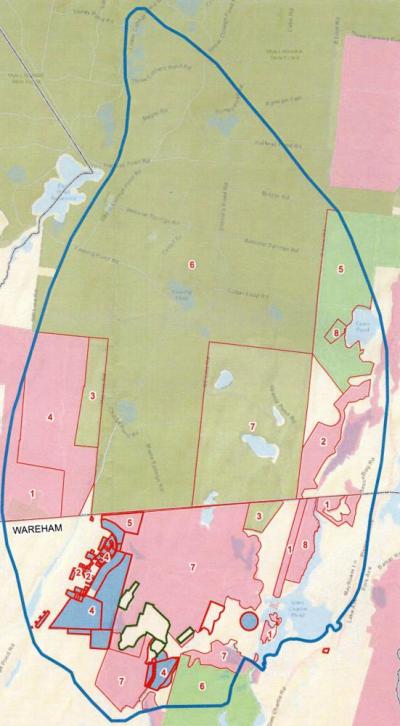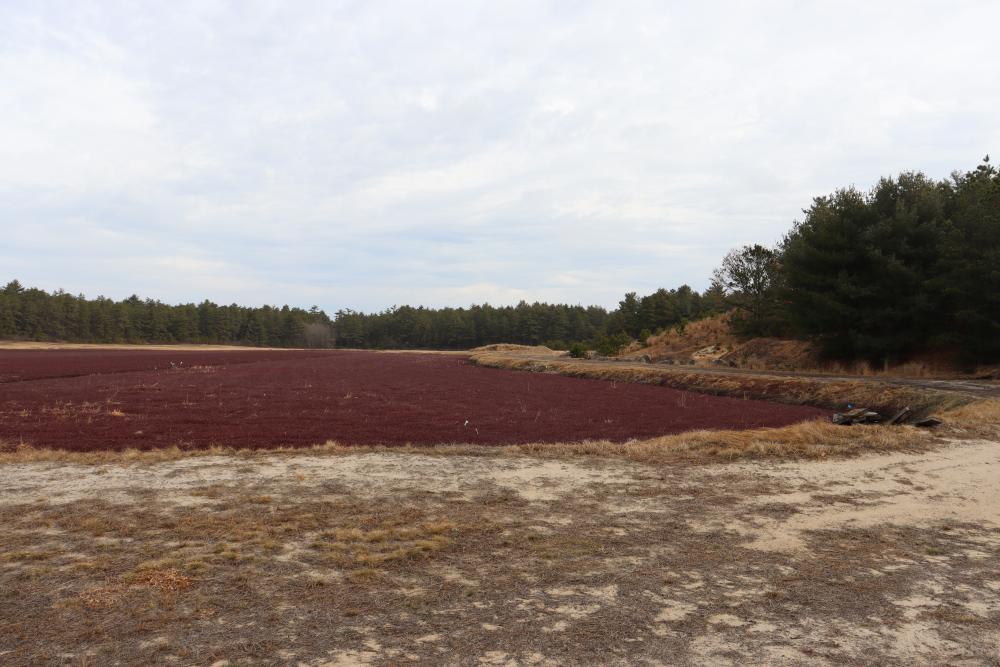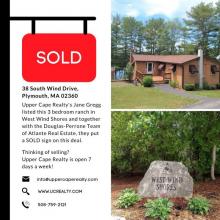From bogs to buffer zones: Water department plans to purchase property

The undeveloped land in Wareham does a good job in keeping the town’s drinking water clean and the Wareham Water Department is looking to upgrade this protection further with the purchase of 77 acres of cranberry bogs.
The pending $1.15 million sale involves eight parcels of land toward the north end of Wareham. Cranberry company AD Makepeace currently owns the land and is working with the water department for the sale, according to water department operations supervisor Andy Cunningham.
A Wareham Fire District Special Meeting held in November 2023 authorized up to $1.2 million in spending for the purchase. The water department is also working with the Executive Office of Energy and Environmental Affairs to secure a state grant which could fund up to $350,000 of the purchase.
Vanessa Farny, a staff member with the office, said the grant process can take some time, and that she hoped to be in touch about the award over the summer but that it may take until early to mid fall. The sale would take place after the grant is received, if the water department gets it.
The land falls outside wellhead protection Zone 1 for the water department’s wells — that’s the area closest to the wells that’s most in need of protection — but within Zone 2, a more expansive area of land that also contributes water to the wells.
Much of Zone 2 extends into the Town of Plymouth.
“Out of the land above Wareham and Plymouth, Plymouth is about 93% protected forever,” said Cunningham. The types of protected land in Plymouth include Myles Standish State Forest and land owned by the Mayflower Council of the Boy Scouts of America.
If the 77-acre purchase goes through, about 54% of the land in Wareham will be protected, but all the most important areas will be covered, said Cunningham.
Once the department purchases the land, it has no specific management plan other than to let it return to its natural state, he said.
Linda Burke, vice president of marketing and communication for AD Makepeace, said the company has protected a lot of land through conservation, deed restrictions and sale. She said the company decided to sell the eight parcels rather than renovate them, a process that involves removing existing and poorly producing vines and replacing them with newer varieties.
“Makepeace has been wonderful with working with the district for many years,” said Cunningham. He said the company has been open with letting the district know the kinds of chemicals it uses for fertilizer and other things which may impact the watershed.
“But still, there’s nothing better than just selling it,” Cunningham added.
















